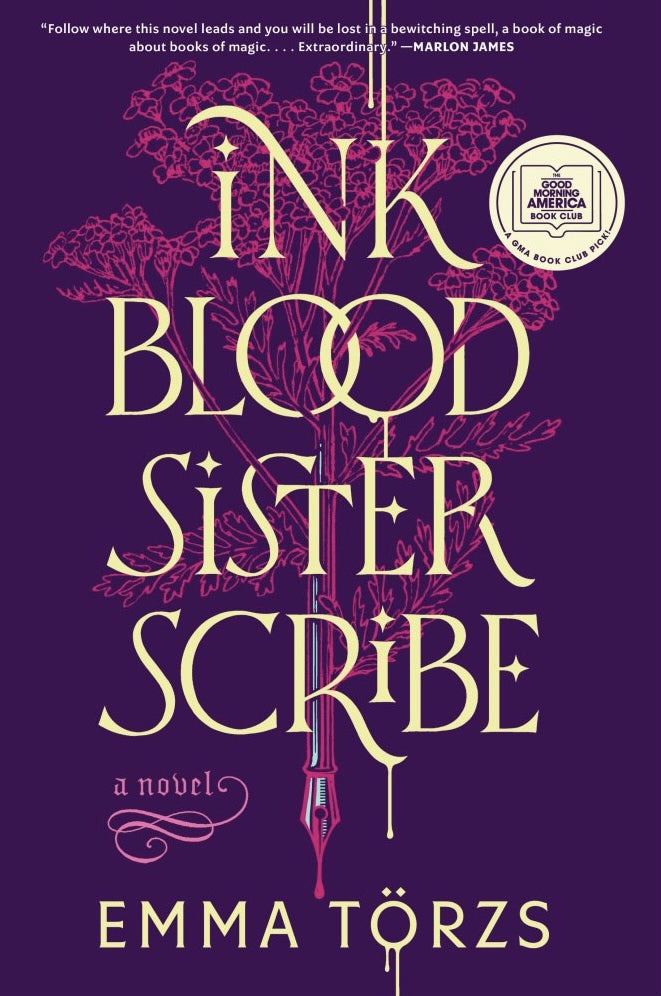In October 2019, Macalester English Professor Emma Törzs got a cat, saw Joanna Newsom live in concert, read a few fantasy novels and did a chapter exchange with a friend. These events spurred her to begin writing her first published novel.
Four years later, on May 30, 2023, Törzs published Ink Blood Sister Scribe, and it has since received glowing reviews, including a “Good Morning America” Book Club Pick.
This novel may be the first Törzs published, but it is not the first she wrote. She finished her first novel in 2016, and though her agent loved it, publishers did not.
“I was really relieved that my novel was not going to get published,” Törzs said. “I realized that I didn’t like the book that I had written, and I wasn’t that proud of it.”
Until 2017, Törzs only published literary realism; her works had no fantastical or supernatural elements. She had interest in other genres, but everywhere she went — especially graduate school — everyone expected her to write literary realism.
“I had success from an early age; I won a bunch of literary prizes,” Törzs said. “I felt like I had to write a very specific type of novel in order to continue that validation from the literary establishment.”
Reflecting on her first novel, however, Törzs realized she had not enjoyed the process. While she enjoyed the act of writing, she hated her work whenever she thought about it or read over it. She turned to her childhood to relearn the joy of writing through reading.
“Fantasy is the genre that made me a writer when I was a kid and made me a reader,” Törzs said. “I pretty much only read fantasy from the ages of seven to 13, and those were my peak reading years.”
Years later, Törzs returned to her fantasy roots with a Google search. That search led her to Clarion West, a prestigious six-week summer workshop in Seattle, Wash., that writers such as Octavia Butler and Ted Chiang have attended.
She applied with a piece of literary fiction and a personal essay begging the workshop to take her even though she’d never written fantasy, and they accepted her. The experience was life-changing.
Flash forward to October 2019, when Törzs’ writer friend — who was on deadline for her second novel at the time — asked her to do a chapter swap. Although Törzs had nothing written and she could have said no, she instead wrote something last-minute.
“I wrote a first chapter and sent it to her, and she was like, ‘I have no comments, just please give me more,’” Törzs said. “That was encouraging.”
From there, Törzs’ novel developed. She went through many different iterations of her story with many different characters.
“I wrote and then rewrote and tried 500 million different things, so many different things that I don’t even remember how I got to where I am now,” Törzs said. “I killed off so many characters. By killed off, I mean I worked so hard at developing them, and then wrote hundreds of pages with them, and then wrote them out of the story entirely. They don’t exist anymore.”
Ink Blood Sister Scribe centers around two half-sisters who were raised to protect their family’s library of magical books. They have spent ten years apart, but reunite when their father dies. Simultaneously, a young man who lives outside London realizes his protected way of life may have sinister implications.
Despite all the changes, the theme of sisterhood stayed central throughout.
“It is a book about sisters,” Törzs said. “I’m really close to my sister, and she has always asked me to write a book about magic sisters. It started out as something that I just did for fun, and then it became, ‘Wow, I guess I’m actually writing a book about magic sisters, here we go.’”
Though Törzs enjoyed writing her novel and loves the fantasy genre, it is not her only interest. The world of bookselling, however, revolves around establishing a brand. Her publishers often ask what the “Törzs brand” is, but Törzs wants to keep her options open. She does not know what she will write in the future, but she does know one simple fact: there is no sequel.
“It stresses me out a little to think that I’ll be ‘branded’ early,” Törzs said, “but I think that the way around that is to do something really different really soon and see what happens.”













